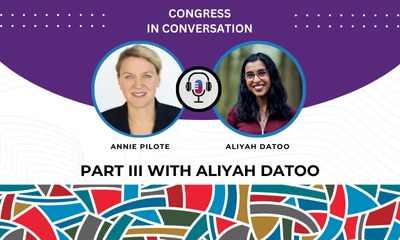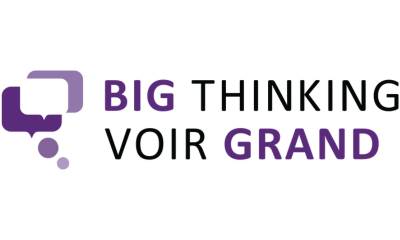As Congress 2022 draws near, it’s worth reflecting on the multiple meanings of the word “congress”: it can refer to a particular place where individuals meet, but also the act of meeting itself. For many, the COVID-19 pandemic has served as a painful, powerful reminder that we need both; we need spaces in which to meet as well as the encounters, conversations, and connections that such spaces can facilitate.
For some time, scholarly communication experts in the humanities and social sciences have stressed the growing importance of digital spaces and tools — including those that support improved, equitable access to information and the newly urgent forms of virtual, open collaboration on which so many of us have relied in the past few years. In this vein, emerging digital research infrastructure and social networking platforms have created unprecedented possibilities for engagement between academic and non-academic communities among scholars, research partners and stakeholders, students, and interested members of the public. One noteworthy example of such a platform is the open digital commons or “digital research commons”: an online community space that augments collaboration and knowledge exchange by providing users with a suite of tools to develop, publish, and share academic resources in one easily accessible environment. More than ever, digital commons can act as crucial gateways to open access research for academics and non-academics alike.

With this goal in mind, the Implementing New Knowledge Environments (INKE) Partnership is hosting two interconnected sessions at this year’s Congress that explore issues related to digital commons and their potential as tools for effective scholarly communication and knowledge mobilization. Both will take place on May 12. In the first session, “Using the Canadian Humanities and Social Sciences Commons: An Interactive Workshop,” participants will receive training on — and begin to develop and exchange knowledge through — the INKE Partnership’s Canadian HSS Commons.
The Canadian HSS Commons is an in-development, national-scale, not-for-profit platform that combines many features of institutional repositories and social networking sites.
In this guided session, participants will learn how to set up their public profiles; create and manage groups as well as collaborative research projects; and share open access publications, drafts, preprints, datasets, teaching materials, and other resources.
In the second session, “A Digital Commons for the Humanities and Social Sciences,” Leslie Weir (Library and Archives Canada), Chad Gaffield (University of Ottawa), Julia M. Wright (Dalhousie University), and Gabriel Miller (Federation for the Humanities and Social Sciences) will discuss how digital research infrastructure can facilitate new forms of open, collaborative, and ethical knowledge mobilization. To this end, panelists will examine how digital commons such as the Canadian HSS Commons fit into the current Canadian scholarly publishing and information ecosystem, while also considering how this kind of digital research infrastructure can address the rapidly changing needs of HSS scholars and scholarly societies in Canada and beyond.
Both of these sessions are part of INKE’s larger SSHRC Connection Grant-funded event series, Launching a Digital Commons for the Humanities and Social Sciences. The first event in this series took place on January 24, 2022. To learn more about the next event in this series, which will take place virtually on June 9 at this year’s Digital Humanities Summer Institute (DHSI), please visit dhsi.org. In addition, if you are interested in learning more about the intellectual history and present-day applications of digital commons, please consider signing up for “Open Knowledge in Context: The Commons,” an aligned workshop which will also take place virtually in June 2022 as part of DHSI. All are welcome.
Register for Congress and mark your calendar for the sessions, part of the open programming for all Congress participants. We look forward to seeing you there.
The INKE Partnership and Canadian HSS Commons are grateful for the generous support of project partners in Canada, Australia, and the United States, including the Federation for the Humanities and Social Sciences, the Social Sciences and Humanities Research Council of Canada, Compute Canada Federation, CANARIE, UVic Systems, the Canadian Research Knowledge Network, the Digital Humanities Summer Institute, Érudit, Iter, the Public Knowledge Project, UVic Libraries, University of Newcastle, Edith Cowan University, and the Humanities Commons.

Bringing communities together
By Dr. Margrit Talpalaru, professor & Academic Convenor for Congress 2025 at George Brown College George Brown College (GBC) is the first college to host the Congress of the Humanities and Social Sciences in its 94 years: this has emerged as the...

Congress in Conversation - Part III with Aliyah Datoo
← Big Thinking Podcast homepage Introduction | About the guest | Aliyah Datoo's Research at Congress | Transcript | Follow us Introduction Welcome to Congress in Conversation, a special series presented by the Big Thinking Podcast in partnership...

Sustaining political community
Big Thinking at Congress 2024 In the face of rising threats to democracy, what can be done to promote sustainable political community? Join us for a thought-provoking discussion on political polarization, social injustice, and the spread of...
